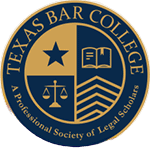- (210) 452-8773
- Mon - Fri 9 AM - 5 PM
- 10107 McAllister Fwy, 78216
-
SKILLED & AGGRESSIVE
REPRESENTATION
Discuss Your Legal Needs With An Experienced Attorney
The Law Office of Joel M. Rodriguez, P.C., provides skilled representation for clients facing family law disputes, criminal matters or personal injury.
-
Schedule A Consultation
We offer free initial consultations.
Call (210) 452-8773 or fill out the contact form. -
Meet With Attorney
Joel M. RodriguezDuring the consultation you will be advised
as to how to proceed with your legal issue. -
Fight For Your Rights In Court
Once you have retained our services we will fight to
to get a favorbale outcome.
Schedule A Free Consultation
An Attorney Helping You Simplify Complex Legal Issues
Joel Rodriguez is a trial lawyer with over 18 years of experience, practicing in multiple areas of civil law, prosecuting and defending complex cases from pre-suit through trial and appeal. His trial practice is focused primarily on divorce cases including custody litigation and modification of decrees, business litigation and commercial contract disputes, personal injury litigation, and criminal defense.
Noteworthy results include many not guilty verdicts in criminal cases, netting large settlements for injuries suffered by clients, as well as numerous favorable judgments and settlements in other civil matters involving complex business, and family law matters.






Practice Areas
Testimonials
Thankful to the Lawfirm and specifically Attorney Rodriguez. Very caring about your case and not just out to seek money. I felt comfortable throughout my entire divorce process after speaking to the attorney about all issues.
Britaney Newman



